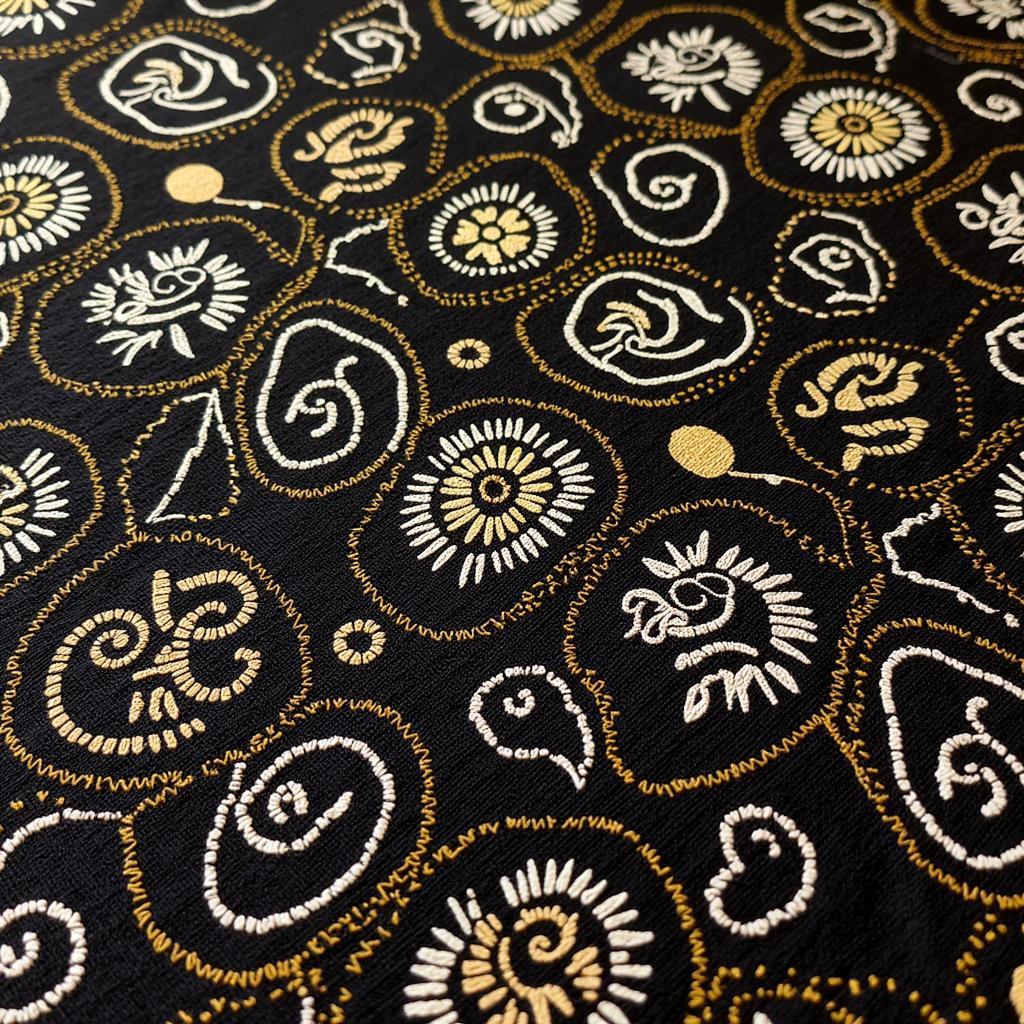Understanding African Jaw Lymphoma
African Jaw Lymphoma, often associated with Burkitt lymphoma, is a highly aggressive form of non-Hodgkin’s lymphoma characterized by its rapid growth and frequent involvement of the jawbone, particularly in children living in equatorial Africa. This article aims to provide a comprehensive understanding of this challenging disease, including its causes, symptoms, diagnosis, and treatment options.
What Causes African Jaw Lymphoma?
The primary cause of African jaw lymphoma is infection with the Epstein-Barr virus (EBV). While EBV is common worldwide, its association with Burkitt lymphoma is predominantly seen in regions of Africa where malaria is endemic. This suggests that a combination of EBV infection and impaired immunity due to malaria may contribute to the development of this cancer. Genetic factors may also play a role.
The link between EBV and Burkitt lymphoma is complex. EBV infects B cells, a type of white blood cell crucial for immune function. The virus can cause these cells to proliferate uncontrollably, leading to the formation of tumors, particularly in the jaw. The weakened immune system characteristic of malaria-endemic regions seems to exacerbate this process. Researchers are actively studying the precise mechanisms by which EBV and malaria interact to cause African jaw lymphoma.
african jaw lymphoma slideshare
Further research is needed to fully understand the complex interplay of genetic susceptibility, EBV infection, and environmental factors in the development of African jaw lymphoma. This research holds promise for improved diagnostic tools and targeted therapies for this aggressive cancer.
Recognizing the Symptoms of African Jaw Lymphoma
Recognizing the symptoms of African jaw lymphoma is crucial for early diagnosis and prompt treatment. The most common symptom is a rapidly growing tumor in the jaw, which can cause facial swelling and distortion. Other symptoms may include:
- Abdominal swelling
- Night sweats
- Fever
- Weight loss
- Fatigue
These symptoms can mimic other illnesses, making early diagnosis challenging. Therefore, it’s essential to consult a medical professional if any of these symptoms appear, particularly in individuals living in or traveling to malaria-endemic regions of Africa.
Diagnosing African Jaw Lymphoma: A Multifaceted Approach
Diagnosing African jaw lymphoma involves a combination of physical examination, imaging studies, and biopsy. A physical exam assesses the extent of the tumor and any associated symptoms. Imaging techniques, such as CT scans and MRI, help visualize the tumor and determine its size and location. A biopsy, the removal of a small tissue sample for microscopic examination, is crucial for confirming the diagnosis and determining the specific type of lymphoma.
The biopsy is examined by a pathologist who analyzes the cells for characteristic features of Burkitt lymphoma. This includes evaluating the size, shape, and arrangement of the cells, as well as the presence of specific markers associated with the disease. Further tests, such as flow cytometry and immunohistochemistry, can help refine the diagnosis and provide information about the lymphoma’s characteristics, which can guide treatment decisions.
Treating African Jaw Lymphoma: Advances and Challenges
African jaw lymphoma is treated with intensive chemotherapy. The goal is to rapidly destroy the cancerous cells and prevent their spread. The specific chemotherapy regimen used depends on the stage of the lymphoma and the patient’s overall health. While highly aggressive, Burkitt lymphoma is also considered one of the most curable forms of non-Hodgkin’s lymphoma, particularly when diagnosed and treated early.
However, access to timely diagnosis and appropriate treatment can be challenging in many parts of Africa. Limited healthcare resources and infrastructure often delay diagnosis and hinder access to specialized care. Improving access to healthcare and raising awareness about the symptoms of African jaw lymphoma are crucial for improving outcomes.
“Early diagnosis and aggressive chemotherapy are essential for successfully treating African jaw lymphoma,” states Dr. Abena Kwame, a leading oncologist at the Korle Bu Teaching Hospital in Accra, Ghana. “Raising awareness among healthcare professionals and the public is critical for improving early detection and ensuring prompt access to treatment.”
How can I prevent African Jaw Lymphoma?
While there’s no guaranteed way to prevent African jaw lymphoma, reducing exposure to malaria through mosquito control measures can lower the risk. Furthermore, maintaining a healthy lifestyle and a strong immune system may also play a role. However, more research is needed to fully understand the preventive measures that can be taken to mitigate the risk of developing this disease.
Conclusion
African jaw lymphoma is a significant health concern in parts of Africa. While it presents unique challenges, early diagnosis and aggressive chemotherapy offer the best chance for a successful outcome. Continued research and improved access to healthcare are crucial for combating this aggressive cancer and improving the lives of those affected.
FAQ
-
What is the survival rate for African jaw lymphoma? The survival rate varies depending on the stage of the disease and access to treatment, but Burkitt lymphoma is generally highly curable with early intervention.
-
Is African jaw lymphoma contagious? No, African jaw lymphoma is not contagious. It is caused by a virus (EBV), but it is not transmitted directly from person to person.
-
How is African jaw lymphoma different from other types of lymphoma? African jaw lymphoma, often associated with Burkitt lymphoma, is characterized by its rapid growth, frequent jaw involvement, and its association with EBV infection and malaria.
-
What are the long-term effects of treatment for African jaw lymphoma? Long-term effects of chemotherapy can vary but may include fatigue, increased risk of infection, and secondary cancers.
-
Where can I find more information about African jaw lymphoma? Reputable organizations like the WHO and the American Cancer Society provide reliable information about lymphoma.
Need assistance? Contact us 24/7:
Phone: +255768904061
Email: kaka.mag@gmail.com
Address: Mbarali DC Mawindi, Kangaga, Tanzania.

